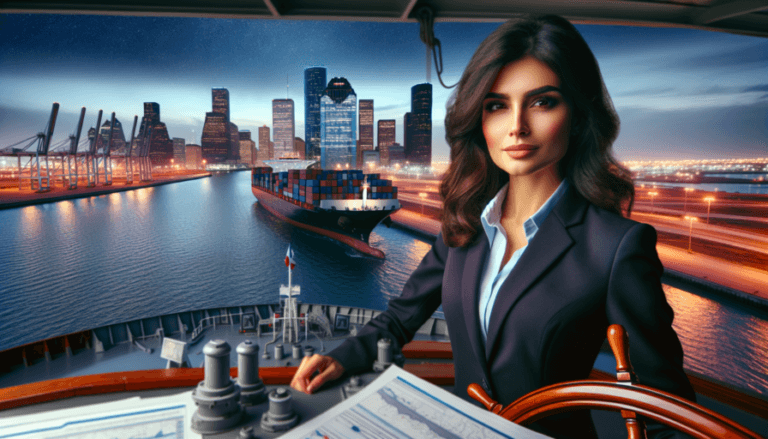Top Offshore Accident Lawyer: Expert Legal Help for Your Maritime Injuries
What is an Offshore Accident Lawyer?
An offshore accident lawyer specializes in legal representation for individuals who have been injured or involved in accidents while working on offshore platforms, ships, or other maritime environments. These lawyers possess a deep understanding of the complex laws and regulations that govern maritime operations, including the Jones Act, the Longshore and Harbor Workers’ Compensation Act, and various international treaties. Their expertise enables them to navigate the intricacies of these cases effectively.
Offshore accidents can occur due to a variety of reasons, such as equipment failure, negligence, unsafe working conditions, or adverse weather. An offshore accident lawyer helps victims seek compensation for their injuries, lost wages, medical expenses, and pain and suffering. They often work with experts in fields like marine safety and engineering to build strong cases against responsible parties, whether they are employers, equipment manufacturers, or third-party contractors.
Key responsibilities of an offshore accident lawyer include:
- Investigating the circumstances surrounding the accident.
- Gathering evidence and witness statements.
- Consulting with medical professionals to assess the extent of injuries.
- Navigating the legal processes related to maritime law.
- Negotiating settlements with insurance companies or representing clients in court.
With their specialized knowledge, offshore accident lawyers play a crucial role in ensuring that injured workers receive the justice and financial support they deserve after an accident at sea or on offshore facilities. Their commitment to protecting the rights of maritime employees makes them invaluable advocates in this challenging area of law.
Common Types of Offshore Accidents
Offshore accidents can occur in various forms, often leading to severe injuries or even fatalities. Understanding the common types of offshore accidents is essential for workers and employers alike to promote safety and reduce risks. Below are some prevalent categories of offshore incidents that frequently affect personnel working in marine environments.
1. Slip and Fall Accidents
Slip and fall accidents are among the most common types of offshore incidents. The slippery surfaces on rigs, platforms, and vessels, often caused by oil spills, water, or weather conditions, pose significant hazards. Workers may lose their footing while performing tasks or moving between areas, resulting in serious injuries such as fractures or sprains. It’s crucial for companies to implement effective housekeeping practices and provide proper footwear to minimize these risks.
2. Equipment Failures
Another major category of offshore accidents involves equipment failures. Heavy machinery, cranes, and other tools are vital for operations but can malfunction due to wear and tear, lack of maintenance, or operator error. Such failures can lead to catastrophic events, including dropped loads or explosions. Regular inspections and adherence to safety protocols are necessary to ensure all equipment operates safely and efficiently.
3. Fire and Explosion Incidents
Fires and explosions are particularly dangerous offshore accidents due to the presence of flammable materials and high-pressure systems. These incidents can be triggered by equipment malfunctions, human error, or chemical reactions. Once a fire starts, it can spread rapidly, posing immediate threats to life and property. Implementing strict safety measures, conducting regular emergency drills, and ensuring access to firefighting equipment are critical steps to mitigate these dangers.
4. Drowning and Water-Related Accidents
Drowning remains one of the leading causes of fatalities in offshore work environments. Workers are at risk when they operate near open waters, especially during adverse weather conditions. Falls overboard, capsized vessels, or inadequate safety gear contribute to these tragic incidents. Providing personal flotation devices (PFDs), training in survival techniques, and establishing clear protocols for water-related emergencies can significantly enhance worker safety in maritime settings.
Why You Need an Offshore Accident Lawyer
When involved in an accident that occurs offshore, the complexities of maritime law can be daunting. An offshore accident lawyer specializes in navigating these intricate legal waters, ensuring you receive the compensation and justice you deserve. These attorneys possess a deep understanding of both local and international maritime regulations, which is crucial for effectively handling your case.
Expertise in Maritime Law: Offshore accidents often fall under unique laws such as the Jones Act or the Longshore and Harbor Workers’ Compensation Act (LHWCA). A knowledgeable attorney will help you understand your rights and responsibilities under these specific statutes. They can assist in determining whether negligence played a role in your accident, which is essential for building a strong case against liable parties.
Maximizing Compensation: Victims of offshore accidents may face substantial medical expenses, lost wages, and long-term rehabilitation costs. An experienced offshore accident lawyer knows how to accurately assess damages and fight for maximum compensation on your behalf. They have the skills to negotiate with insurance companies and other entities, ensuring that all aspects of your financial recovery are considered.
Handling Complex Investigations: Offshore incidents frequently involve multiple parties, including employers, vessel owners, and equipment manufacturers. An offshore accident lawyer can efficiently handle investigations, gathering evidence and expert testimonies necessary to establish liability. This thorough approach not only strengthens your claim but also alleviates the stress of managing legal proceedings during a challenging time.
How to Choose the Right Offshore Accident Lawyer
Choosing the right offshore accident lawyer is crucial for ensuring that your legal rights are protected and that you receive the compensation you deserve. With so many options available, it can be overwhelming to determine which attorney is best suited for your specific case. Here are some key factors to consider when making your decision.
Experience and Specialization
One of the first aspects to evaluate is the lawyer’s experience in handling offshore accident cases. Look for an attorney who specializes in maritime law or has a proven track record with similar incidents. An experienced lawyer will not only understand the complexities involved in offshore accidents but also possess valuable insights into how to navigate the legal system effectively. You might want to ask questions such as:
- How many years have you been practicing maritime law?
- What types of offshore accident cases have you handled?
- Can you provide references from past clients?
Reputation and Reviews
Researching a lawyer’s reputation is equally important. Check online reviews, testimonials, and ratings on legal websites to gauge their standing in the community. A well-respected lawyer will often have positive feedback from previous clients and colleagues alike. Don’t hesitate to look up any disciplinary actions or complaints against them; this information is typically accessible through state bar association websites.
Communication and Accessibility
Effective communication is vital in any legal representation. During initial consultations, assess how well the lawyer listens to your concerns and explains the legal process. A good offshore accident lawyer should be approachable, responsive, and willing to keep you updated throughout your case. Consider asking:
- Will I be able to reach you directly, or will I communicate with your staff?
- How frequently will you provide updates on my case?
- What is your preferred method of communication?
Finding the right offshore accident lawyer requires careful consideration of these elements to ensure you have a dedicated advocate by your side.
The Legal Process for Offshore Accident Claims
Navigating the legal process for offshore accident claims can be complex and often requires specialized knowledge. The first step in this process typically involves gathering evidence related to the incident. This includes documenting any injuries, collecting witness statements, taking photographs of the scene, and obtaining relevant medical records. It’s crucial to act promptly as there may be strict time limits, known as statutes of limitations, that apply to your claim.
Once sufficient evidence is collected, the next stage involves determining liability. In many offshore accidents, multiple parties may be at fault, such as employers, vessel owners, or equipment manufacturers. Identifying the responsible parties is essential for a successful claim. Engaging an attorney with experience in maritime law can significantly aid in establishing liability and ensuring that all potential defendants are considered.
After establishing liability, the injured party can proceed to file a formal claim. This process usually begins with sending a demand letter to the liable party’s insurance company. The demand letter outlines the details of the accident, the extent of injuries, and the compensation sought. Following this, negotiations may take place, where both parties discuss settlement options. If a satisfactory agreement cannot be reached, the case may escalate to litigation, requiring court involvement.
Throughout the entire process, it is important to keep detailed records of all communications and documents exchanged. This not only aids in building a strong case but also ensures compliance with any legal requirements. Utilizing experienced legal representation can streamline the process and enhance the likelihood of a favorable outcome in offshore accident claims.
Frequently Asked Questions About Offshore Accidents
When it comes to offshore accidents, many individuals have a plethora of questions regarding safety protocols, legal responsibilities, and compensation. Understanding these aspects is crucial for those working in or affected by the offshore industry.
What are common causes of offshore accidents?
Offshore accidents can arise from various factors, including but not limited to:
- Equipment failure: Malfunctioning machinery can lead to severe incidents.
- Human error: Mistakes made by crew members often contribute to accidents.
- Weather conditions: Severe weather can pose significant risks during offshore operations.
- Inadequate training: Insufficiently trained personnel may not respond effectively in emergencies.
[aib_post_related url=’/search/commercial-truck-accident-lawyer/’ title=’Top Commercial Truck Accident Lawyer: Get the Compensation You Deserve’ relatedtext=’You may also be interested in:’]
Who is liable for an offshore accident?
Determining liability in offshore accidents can be complex. Typically, responsibility may fall on one or more parties, such as:
- The employer: Companies have a duty to ensure safe working environments.
- Manufacturers: If equipment malfunctions due to design flaws, manufacturers may be held accountable.
- Contractors: Third-party contractors must also adhere to safety regulations.
[aib_post_related url=’/search/houston-maritime-attorney/’ title=’Top Houston Maritime Attorney: Expert Legal Services for Your Maritime Needs’ relatedtext=’You may also be interested in:’]
How can victims seek compensation after an offshore accident?
Victims of offshore accidents often have several avenues to pursue compensation, which can include:
- Workers’ compensation claims: These claims provide benefits regardless of fault.
- Lawsuits: In cases of negligence, victims may file lawsuits against responsible parties.
- Maritime law claims: Specific laws protect maritime workers and allow them to seek damages.
Understanding these frequently asked questions about offshore accidents can empower individuals with the knowledge they need to navigate this challenging landscape effectively.
Understanding Maritime Law and Its Impact on Offshore Accidents
Maritime law, also known as admiralty law, governs activities conducted at sea and other navigable waters. This body of law encompasses a wide range of legal issues, including shipping, navigation, waters, commerce, and the rights and responsibilities of seafarers and maritime workers. Understanding maritime law is crucial for addressing offshore accidents, as it provides the framework for resolving disputes and determining liability in such incidents.
One significant aspect of maritime law is its application to offshore injuries and accidents involving crew members working on vessels or platforms. The Jones Act, a key component of U.S. maritime law, allows injured sailors to seek compensation from their employers if negligence can be proven. This act plays an essential role in protecting the rights of maritime workers and establishing accountability among employers regarding safety standards and practices.
In addition to the Jones Act, the Longshore and Harbor Workers’ Compensation Act (LHWCA) offers protection to non-seamen who are injured while working on navigable waters or adjoining areas. Under this act, workers may receive benefits regardless of fault, which simplifies the process of obtaining compensation after an accident. Both these laws highlight the importance of understanding specific maritime regulations when navigating claims related to offshore accidents.
Key Factors Influencing Maritime Law and Offshore Accidents:
- Jurisdiction: Determining which court has authority over a maritime case can significantly impact the outcome.
- Negligence Standards: Different laws establish varying standards for proving negligence, affecting the compensation awarded to injured parties.
- Seaworthiness Doctrine: Shipowners have a duty to ensure that their vessels are seaworthy; failure to do so can lead to liability for injuries sustained by crew members.
By comprehensively understanding these components of maritime law, individuals involved in offshore operations can better navigate the complexities surrounding accidents and assert their rights effectively.
Case Studies: Successful Offshore Accident Claims
When it comes to offshore accident claims, real-world case studies can provide valuable insights into the complexities and successes of navigating these legal waters. Each case highlights specific challenges and strategies that led to favorable outcomes for injured workers or their families. Below are a few notable examples that illustrate successful offshore accident claims.
Case Study 1: Crane Operator Injury
In one significant case, a crane operator working on an oil rig suffered severe injuries due to equipment failure. The claim was based on negligence, asserting that the employer failed to maintain the machinery properly. Through extensive documentation and expert testimony regarding safety standards, the injured worker successfully obtained compensation covering medical expenses, lost wages, and pain and suffering. This case underscored the importance of rigorous maintenance protocols and the responsibility employers have to ensure a safe working environment.
[aib_post_related url=’/search/truck-accident-attorney-dallas/’ title=’Top Truck Accident Attorney in Dallas: Get the Compensation You Deserve’ relatedtext=’You may also be interested in:’]
Case Study 2: Slip and Fall Incident
Another compelling example involved a crew member who sustained injuries from a slip and fall incident on a wet deck. After gathering evidence such as witness statements and maintenance logs, the claimant’s legal team demonstrated that inadequate safety measures were in place. As a result, the court ruled in favor of the injured party, awarding damages for ongoing medical treatment and rehabilitation costs. This case emphasizes how essential proper training and environmental upkeep are in preventing workplace accidents.
Case Study 3: Exposure to Hazardous Materials
A third case revolved around an employee exposed to hazardous materials without appropriate protective gear. The individual developed long-term health issues, prompting them to file a claim against their employer for failing to comply with OSHA regulations. The case highlighted the critical need for strict adherence to safety guidelines, leading to a settlement that covered not only medical bills but also punitive damages due to willful neglect by the employer. Such cases reinforce the significance of accountability in ensuring worker safety at sea.
These case studies exemplify the diverse nature of offshore accident claims and the various factors that contribute to their success. By analyzing these real-life scenarios, other individuals facing similar situations can better understand their rights and the potential pathways toward obtaining just compensation.
Contacting an Offshore Accident Lawyer: What to Expect
When you reach out to an offshore accident lawyer, the initial interaction is crucial for setting the stage for your case. Expect a thorough consultation, where the lawyer will ask detailed questions about the incident that led to your injury. This may include specifics such as the location of the accident, the parties involved, and any documentation or evidence you have gathered, like photographs or witness statements. The aim is to gather all relevant information to assess the viability of your claim.
During this first meeting, you’ll also receive important insights regarding the legal process related to offshore accidents. Your lawyer should explain potential challenges that might arise, especially if your case involves maritime law, which can differ significantly from typical personal injury cases. Understanding these nuances early on will help you navigate the complexities ahead. Additionally, they will discuss their fee structure, including whether they work on a contingency basis, meaning they only get paid if you win your case.
As part of the consultation, you should feel comfortable asking questions about the lawyer’s experience with similar cases. It’s essential to gauge their familiarity with offshore regulations and past successes in obtaining compensation for clients. A reputable offshore accident lawyer will be transparent about their qualifications and provide examples of previous outcomes to instill confidence in their capabilities.
Lastly, after discussing your situation and understanding the legal landscape, expect the lawyer to outline the next steps. This may involve gathering more evidence, filing necessary claims, or communicating with insurance companies. Being prepared for this roadmap will empower you throughout the process, ensuring that you’re actively engaged in pursuing justice for your offshore accident.



